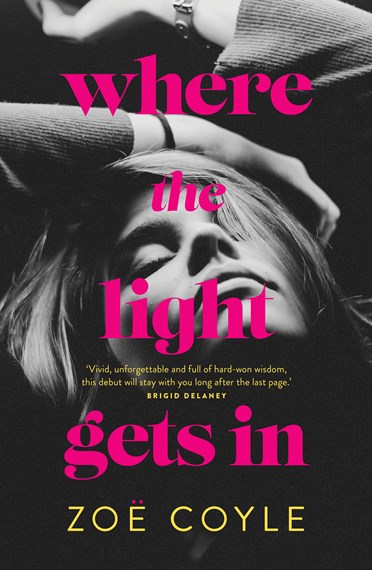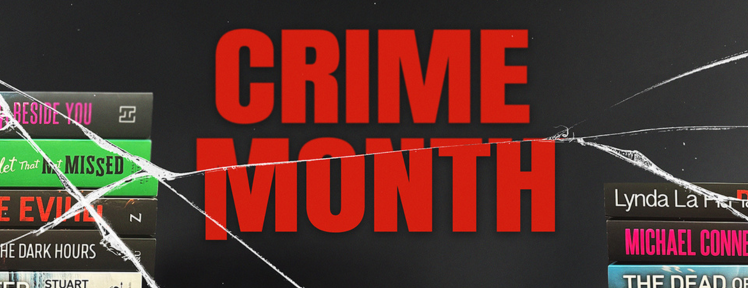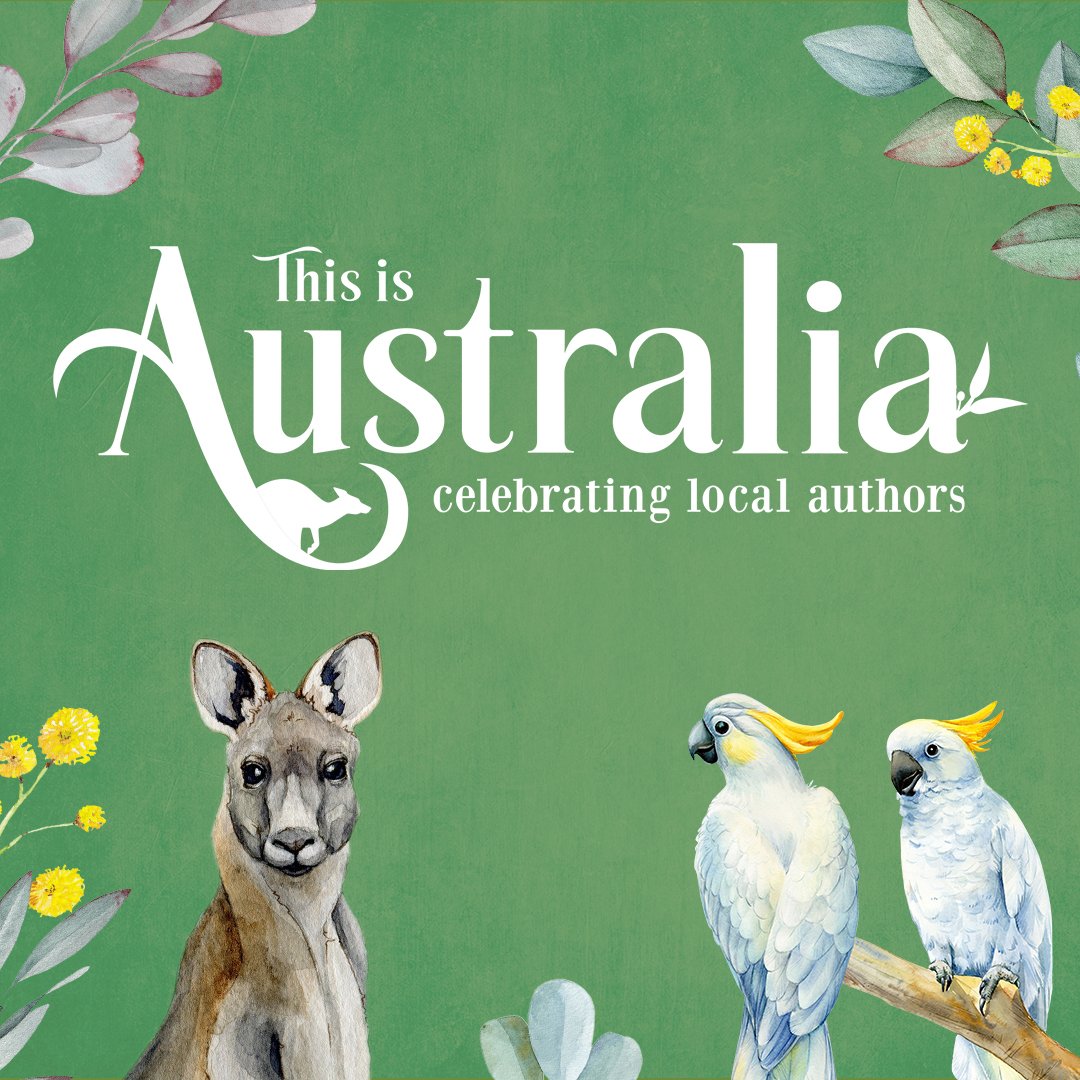Zoë Coyle has spent over 15 years in corporate and communication training, building on her 20 years’ experience as a film and theatre actor in the UK, US and Australia. She is the communication coach of choice for the CEOs of some of Australia’s largest companies, small businesses and not-for-profit organisations. Where the Light Gets In is her first novel.
Today, Zoë Coyle is on the blog to answer a few of our questions about her debut. Read on …
Please tell us about your book, Where the Light Gets In.
ZC: Delphi is a woman who is just getting her life together in London with the prospect of a new love and a new job when her mother, who has a terminal illness, asks her to cross the world to join her in Australia to help her die. It is about grief, bereavement and the courage that is required to heal, to become whole again when we’ve been broken. One of my epigraphs is the Japanese term Kintsugi, which is the art of mending broken ceramics with gold. Rendering the repaired object with its golden fractures more beautiful than the original. I love that.
And if that all sounds very heavy, I’m a big seeker of joy, and I very much hope that is in the novel too. Other themes are love, hope, friendship, sex, art, and dogs. All the good things.
Where did the inspiration for this novel come from?
ZC: There was a singular moment actually. The genesis of this story arrived when I was in a bathtub heavily pregnant with my first child. I felt compelled to take stock of who I was, of my history, of who I wanted to be for my child, of what I wanted her to inherit and what I needed to clean up in my psyche so it wasn’t hers to solve or survive. In essence I knew I wanted to get myself together. That is the seed of my lived reality that I planted and it grew into the fictional tree that is this novel. As a writer we get to ask ‘What if?’ over and over again, and explore those wonderful concentric circles that radiate out from that questioning.
The mother-daughter relationship between Inica and Delphi is obviously hugely complex, encompassing both trauma and love. How did you go about bringing it to life?
ZC: I am endlessly fascinated by the relationships that form us, particularly those profoundly significant ones from childhood. Some years ago I attended a retreat called The Hoffman Process where the participants are guided to unpack the patterns in their lives to see where and why those patterns were born. It was one of the most intense but deeply rewarding experiences I’ve ever had. It’s not about blaming our pain on our parents or guardians, it’s about coming to understanding so we can evolve and live more fully and peaceably. It’s the work of consciousness raising or, and I love this term, it’s about coming home to self.
As an aside Delphi’s surname is Hoffman. Which was my celebratory nod to the Process. It also works so well because she is a seeker, she craves to understand and be free of confusion and pain.
My mother died over twenty years ago, she euthanised herself when it still wasn’t legal to do so in Australia. So I couldn’t be with her when she died. As I speak to you now, 5 of our 6 states have passed Voluntary Assisted Dying laws with so far only two states currently operational (Western Australia and Victoria), but when my mother needed help it wasn’t available to her. This novel is not her story, I created fictional characters and a fictional storyline to best explore the themes and questions I wanted to mine around the right to die. Trauma, grief and bereavement aren’t talked about very much because they so complex, frightening and dark. But I know grief – (of course we all do) – I know what it is to be smashed to pieces by the death of someone I adored. I also know something of the precarious route out of the darkness and I wanted, in part, to write about that.
I am also the mother of 4 children. So I think about mothering and how to do it well every single day.
What appeals to you about the novel as a form for writing about contentious themes and topics like euthanasia?
ZC: I am a constant reader. My life has been deeply enriched through literature. It has opened doors on worlds and experiences I will never have the opportunity to live. It has exposed me to ideas and people, and delivered me such riches. Literature has made me braver, less judgmental, more open minded and without a doubt has increased my capacity for empathy and swollen my wild love of life. If I am without a novel, which doesn’t happen often, I feel diminished, as if parts of me deflate and go grey.
Also I have so many adored friends from novels, which of course are created characters but they carry on living inside me. And some writers whom I’ve never met but I consider beloved long term buddies, that I carry on having conversations with throughout my life.
Literature is a great antidote to loneliness and I think it’s also a form of meditation. I love my focus being utterly drawn to one point, making my Zoë-ness recede. So nice to have a break from myself!
‘Literature has made me braver, less judgmental, more open minded and without a doubt has increased my capacity for empathy and swollen my wild love of life.’
Who did you write this book for? Who do you wish would read it?
ZC: For everyone. But if that is a bit ambitious and broad, I hope anyone who has known loss and isolation will find comfort and companionship in this book. My intention was to offers up big questions but also some possible pathways to peacefulness.
Professor Curt Richter who worked at John Hopkins did some fascinating drowning rat psychology experiments in the 1950’ies. Delphi refers to it in the novel. What Richter found is that if you put a rat in a bucket of water it will drown in fairly short order. So grim I know. Sorry, stay with me. But if you take the rat out of the bucket of water and give it a look around then return it to the bucket it will swim on for days. Why? Because it’s been given hope. A shocking experiment to be sure but what it so powerfully illustrates is that hope is extremely powerful. I think about that often and try to cultivate and cherish hope in my life, and this novel is threaded through with hope.
Can you tell us a little bit about your journey towards becoming a writer?
ZC: I have always wanted to be a writer, but life, fear and not knowing how got in the way. Ira Glass spoke some years ago about taste, and that what gets a person into creating is that they have, to use his term ‘killer taste’ but because of that, in the beginning, when they’re inexperienced they can see this terrible gap, between what they can initially create and what they know to be good or indeed great. But without the doing it badly, we can never get better. I was atrophied in that gap for many years. I started and failed to complete seven novels, but turning 40 I just bit the bullet and made the choice to throw caution to the wind, to turn up at my computer and write. To try to put my fear, ego, and sense of not-enoughness on a short chain, and get out of my own way. There’s an Arthur Miller quote that has been really helpful for me, he said of his own work, ‘take it or leave it, this is the best I’ve got.’ That I’ve found is really freeing.
I was lucky enough to be given a two book deal from Ultimo Press. I am grateful because I have learnt so much from writing my debut that it’s a luxury to be able to harness that and dive back in with greater confidence and daring.
You’re the founder of Pilot Light Consulting and you trained with Brené Brown to be an accredited Dare to Lead facilitator. How much of your approach to that kind of work informed the writing of this novel?
ZC: Hugely. In my business I work with organisations as a leadership facilitator and agent of cultural and personal change. Brené’s work because of who she is, and that it’s underscored by extensive research gives it a legitimacy that brings so many people across the line to a place of greater self-awareness, emotional intelligence, courage and positive behavioural change.
When I went to Texas being to be trained by Brené, it changed my life. It is exciting and a privilege to pass those teachings on. I’m interested in constantly evolving, in looking at my blind spots, my prejudices, my protection mechanisms and doing better. As Socrates said ‘The unexamined life is not worth living.’ That seems a bit extreme to me, my dog doesn’t examine her life I don’t think, but she’s having a great time and has amazing skills at being in the present. Animals and babies are Zen masters in a sense. But where I do agree with Socrates, is that the examined life allows us to live with purpose and to love and be loved fulsomely. Which to me seems the whole point of life.
What is the last book you read and loved?
ZC: I have read many excellent books this year so thank you for asking me which was the most recent rather than the best. Mothering Sunday by Graham Swift I thought was all sorts of wonderful. I keep retuning to the imagery, and wonder about the characters with great tenderness. It reminded me a little of Ian McEwan’s On Chesil Beach, but where that novel is dark greys, this one, even shot through with tragedy is bathed in sunlight.
Also I have to mention Jonathan Franzen’s Crossroads. What spectacular understanding he has of us as a species. His skill is masterly. When I finished it I just carried the book around for a while because I didn’t want to let it go.
What do you hope readers will discover in Where the Light Gets In?
ZC: I hope they’ll find beauty and some interesting questions about belonging versus fitting in. I would love it to provoke conversation about euthanasia and how we societally deal with bereavement and trauma. I really resile from certain sectors of the wellness industry that preach that we are broken, and only if we do this, eat that, be with this person we’ll be saved. I don’t agree with that thinking, it’s actually quite sinister. Or the trope that we need to be in a romantic relationship to be valid and that a lover will solve us. We all get battered about by life, everyone suffers, but what I’m fascinated by is how we find our way back to the light. And the valour of that struggle. And if we make it, ultimately as I say in the book a cathedral is built within us, a place of reverence, awe, gratitude and perspective. That we are more capable of love and self-compassion and kindness.
I also hope my readers will enjoy the travel, Australia, England, Italy, because we sure haven’t had much of that in the last few years. And I hope they’ll be warmed by the fires of rich friendships.
And finally, what’s up next for you?
ZC: I am about to hand my second novel to my terrific publisher and editor at Ultimo Press Alex Craig. This one is quite different to Where the Light Gets In, it’s about sex, power and rage. It has been so much fun to write. My main character Odessa comes to such an extreme moment of provocation that she wades into her friends’ marriages to teach and manipulate their husbands. Her heroic aim is to get those men to evolve but her strategies know no limits. It’s a sex-soaked modern day morality tale. I’m often asked if Where the Light Gets In is a memoir. It will really make me laugh if I’m asked the same thing about book 2.
—Where the Light Gets In by Zoë Coyle (Ultimo Press) is out now.

Where the Light Gets In
Delphi Hoffman, a wild child living in London, is finally getting her life together with a new love affair and the offer of a coveted job – until she receives the phone call she hoped would never arrive. ‘It’s time.’
Her mother Vivian’s terminal illness has reached its tipping point and she summons Delphi to Australia to help her to euthanise. Unable to deny her mother’s suffering, or her promise to her of a good death, Delphi reluctantly returns to her mother for the last time...








 What do we know about the Boy Swallows Universe Netflix show?
What do we know about the Boy Swallows Universe Netflix show?  Booktopia’s top thrilling fiction picks for Crime Month
Booktopia’s top thrilling fiction picks for Crime Month  Booktopia’s Top First Nations Book Recommendations for 2023
Booktopia’s Top First Nations Book Recommendations for 2023
Comments
No comments